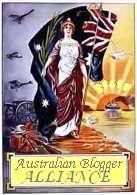Mistaken Identity
SINCE the Hawke government proposed the introduction of the Australia Card, the world has grown a lot smaller, with one consequence being that individual privacy is a lot more precious.Terrorism has also replaced the Cold War as the major threat to global security and discovering the means of fighting it is taking far more time and resources than was the case 20 years ago. In that sense, it is perhaps understandable that various public figures, including Prime Minister John Howard and Premier Peter Beattie, have called for a debate on the worth of a national identification system to make it harder for terrorists to escape detection. Mr Howard has said the world is a different place to what it was when he opposed the Australia Card as opposition leader in 1987. Mr Beattie has suggested that since there is so much personal information on individuals held by governments now, the introduction of a national ID system would not be that great a step to take.
But this is the very reason that the debate on personal information and the uses to which it can be put has moved far beyond the question of an individual ID card and whether it is a cure-all for criminal or terrorist activity. Today, governments have easy means of compiling vast detail about individual lives. Medicare cards, credit cards, even the SIM cards in mobile phones, have enormous capacity to compile information on a person's movements and activities. Much of this information is for sale to private companies wanting to build databases of potential customers. Usually, the first Australians learn that something about them or their behaviour has been bought like it was just another commodity is when they receive a phone call at home from a telemarketer wanting to sell them something. As more information about people is collected, cross-referenced and disseminated, the concerns about individual privacy grow stronger. Just because governments and financial institutions know much more about the individuals who use their services than they did 20 years ago does not mean that individuals should surrender their privacy rights. Indeed, much of the public disquiet over the Government's attempts to strengthen Australia's security and intelligence capabilities has centred on what such changes mean for civil liberties and the right to privacy. Such disquiet is likely to turn into public revolt long before the Government gets very far down the track of introducing a national identification system.
There is another reason the idea of an ID card is likely to remain just that in Australia. Recent history suggests governments cannot be trusted not to abuse such a system. The fate of wrongly detained Australian Cornelia Rau has been held up as an example of why a national ID card would be a good idea, yet her treatment at the hands of immigration and police authorities should serve as a warning about how individuals judged to be embarrassments to the government of the day would fare under a national ID system.
I think the UK has identity cards, i wonder if America has them?
Your view?
till next time, Michelle.






0 Comments:
Post a Comment
Subscribe to Post Comments [Atom]
<< Home